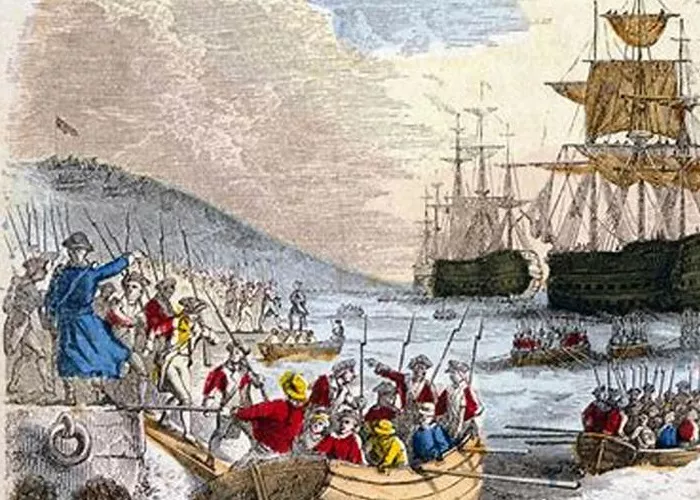November 25 has witnessed several significant historical events in Canada, reflecting the country’s evolving political landscape, cultural milestones, and contributions to global movements. Below, we explore notable occurrences on this date throughout history.
What Happened on November 25 in Canadian History?
The Birth of a Nation: The Last British Troops Leave New York City (1783)
On November 25, 1783, the last British troops evacuated New York City, marking a pivotal moment in the aftermath of the American Revolutionary War. This event symbolized the end of British colonial rule in the United States and had profound implications for Canada. Many loyalists, who remained faithful to the British Crown during the Revolution, fled to Canada seeking refuge. This migration significantly influenced Canadian demographics and culture, as these loyalists brought with them their customs, traditions, and governance styles.The departure of British forces from New York was not just a military retreat; it represented a broader shift in power dynamics across North America. The loyalists who settled in Canada contributed to its development as a distinct entity separate from the United States. Their influence can be seen in the establishment of various communities and institutions that laid the groundwork for modern Canadian society.
The First Recorded Cricket Match in Australia (1803)
While not directly a Canadian event, the first recorded cricket match in Australia on November 25, 1803, is noteworthy as it highlights the cultural exchanges between Canada and other British colonies. Cricket was introduced to Canada by British settlers and quickly became a popular sport. The establishment of cricket matches in various colonies, including Australia and Canada, reflects the shared colonial heritage and sporting traditions that have shaped both nations.In Canada, cricket gained popularity among British expatriates and eventually led to the formation of local clubs and competitions. The sport remains an important part of Canadian culture today, particularly within immigrant communities from cricket-loving nations.
The Establishment of National Mourning for John F. Kennedy (1963)
On November 25, 1963, President John F. Kennedy was laid to rest at Arlington National Cemetery following his assassination on November 22. This day was marked as a national day of mourning across the United States, but its impact resonated in Canada as well. Canadians shared in the grief over Kennedy’s death due to his close ties with Prime Minister Lester B. Pearson and his administration’s policies that fostered strong bilateral relations.Kennedy’s assassination had significant implications for Canadian-American relations and influenced public opinion in Canada regarding U.S. foreign policy. The emotional response to his death highlighted North American politics and culture during this period.
The Assassination of the Mirabal Sisters (1960)
Although primarily associated with the Dominican Republic, the assassination of the Mirabal sisters on November 25, 1960, resonates with Canadian history due to Canada’s commitment to human rights and social justice. The sisters were political activists who opposed the dictatorship of Rafael Trujillo; their brutal killings galvanized opposition against his regime.In 1999, the United Nations General Assembly declared November 25 as the International Day for the Elimination of Violence Against Women. This declaration aligns with Canada’s ongoing efforts to combat violence against women and promote gender equality. Canadian organizations have since used this day to raise awareness about domestic violence and advocate for women’s rights.
Agatha Christie’s The Mousetrap Premieres (1952)
On November 25, 1952, Agatha Christie’s play The Mousetrap premiered in London’s West End. This event is significant not only for its cultural impact but also for its connection to Canadian theater arts. As one of the longest-running plays in history, The Mousetrap has been performed in numerous countries, including Canada.Canadian theater companies have embraced Christie’s work over the years, contributing to a vibrant theatrical landscape that includes adaptations and performances of her plays across various provinces. This cultural exchange highlights Canada’s appreciation for literature and drama originating from Britain.
The Introduction of Fingerprint Evidence in Criminal Cases (1930)
On November 25, 1930, Cecil George Paine became the first person convicted using fingerprint evidence in the United Kingdom. This groundbreaking technique eventually made its way to Canada and transformed law enforcement practices across the nation.The adoption of fingerprinting as a reliable method for identifying suspects significantly improved criminal investigations in Canada. It led to more accurate convictions and reduced wrongful accusations based on circumstantial evidence alone. This advancement underscored Canada’s commitment to justice reform and modern policing techniques.
Conclusion
November 25 serves as a reminder of Canada’s rich historical tapestry woven through significant events that have shaped its identity over time. From political changes following colonial rule to cultural milestones that resonate within Canadian society today, this date encapsulates moments that reflect both national pride and global connections.
Related Topics:

